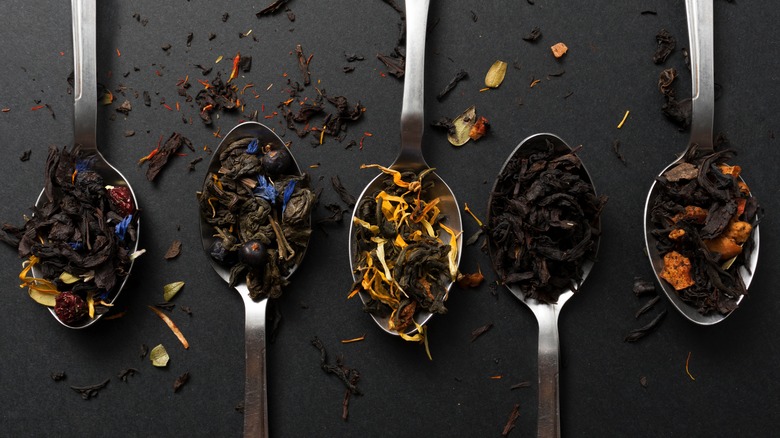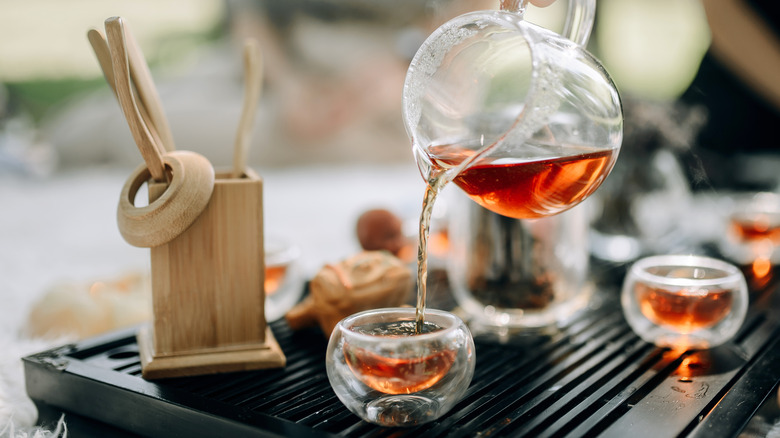The Real Reason One Chinese Tea Costs More Than $184,000
If a food or drink comes with an eye-watering price tag, it's usually because of scarcity. For example, the cost of real wasabi goes into the hundreds of dollars per kilogram because the root can only be grown in running water that is kept at a very specific band of temperature. So, when you see a tea that costs more than $184,000, you can reasonably bet that scarcity is at play.
Indeed, CNN says as much in its report. Niu Lan Keng Rougui is a Rougui tea grown in one valley brook in the Wuyi Mountains. Wuyi teas, which are also called rock teas, are expensive in general because they develop a distinctive flavor due to the rocks from which the trees spring — and those rocks cover a very small area. Moreover, Teasenz continues, the local terrain operates under strict regulation to preserve the small batches of distinctive tea, and those teas are only harvested once per year.
All rock teas are expensive, but CNN lists Glassbelly's Niu Lan Keng Rougui at $4,560 for 25 grams and $184,615 per kilogram, or just over two pounds.
Is this tea worth it?
After dealing with why a food or drink is so expensive, the question of whether the price is worth it arises. After all, even if you only go for the restaurant price of $3,577 that CNN gives, that's still a lot of money. In fact, it might make Salt Bae's prices seem less unreasonable.
According to Nannoushan, it isn't. "Despite being an excellent Rock Tea — one of the best we ever tasted — we don't believe that its price is justified," they concluded. More importantly, it isn't even the best cost to quality Wuyi tea out there.
However, Wing Yeung, the founder of Glassbelly, explained to CNN that the flavor of tea seems to come as an afterthought. "A major problem with Chinese tea is that there is no subjective answer to what good tea is," Yeung explained. "There are many sentimental stories and artistic elements when it comes to selling tea, but so little about the actual flavors of the tea."
It should be noted that Yeung frames this as a negative. Ultimately, a comparison between tea and alcohol is drawn: Great tea is cheaper than great wine, which suffers from a similar, vague subjectivity. So, it could be said that the tea costs just under 200 thousand because it's scarce and people imagine that it's worth that much.

